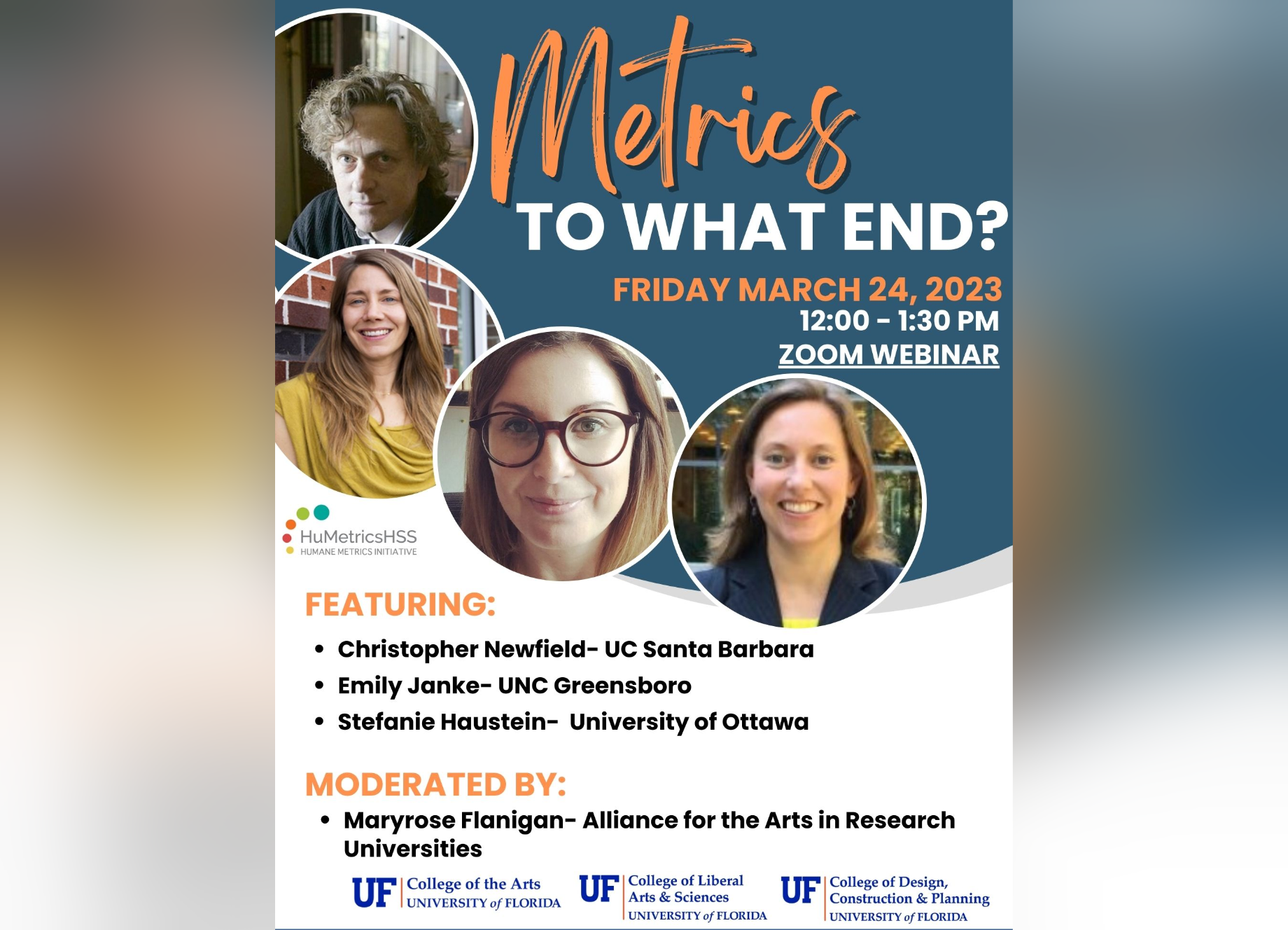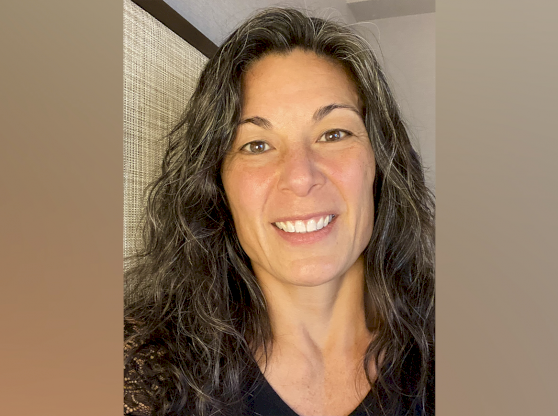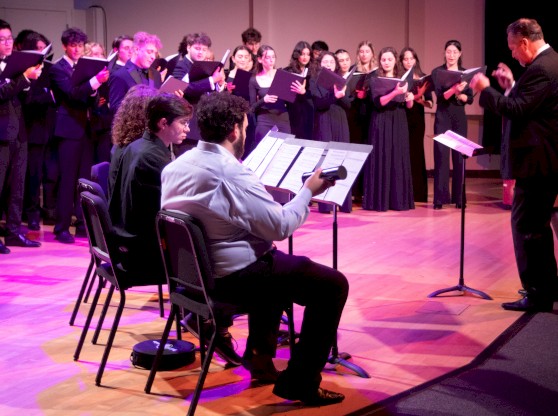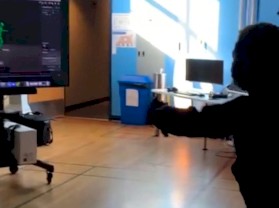- Date & Time
Friday, March 24, 2023 12:00pm to 1:30pm
- Cost
- Free
- Description
How do we assess the value and impact of research activities in our fields, for example, when seeking promotion, applying for external funding, or pursuing distinctive awards? Over the last decade, higher education has increasingly employed quantitative metrics platforms like Academic Analytics, H-Index, and Impact Factor to empirically measure faculty research and institutional rank. Since these tools track only certain forms of scholarship such as some peer-reviewed articles and books, federal grants, patents, and clinical trials, they do not recognize valuable work that appears in other forms or spaces. How can scholars in arts, humanities, and design create expansive understandings of excellence and impact that characterize fields like ours, where ‘outputs’ and ‘publications’ may take different forms? This panel explores how we can create and use appropriate metrics that reflect and celebrate forms of knowledge, creative research, and social engagement that genuinely matter in the arts, humanities, and the allied disciplines of design. What tools exist to capture the values that matter in our fields? What language do we use to explain and elevate those values in the spaces where we often go unheard? And what role can AI and emerging technologies play in helping us make visible these research impacts?
Featuring: Christopher Newfield, Emily M. Janke, and Stefanie Haustein
Moderated by: Maryrose Flanigan
This panel is organized by the College of the Arts, College of Liberal Arts & Sciences, and College of Design, Construction and Planning with support from a HuMetricsHSS Community Fellowship (funded by the Humane Metrics Initiative at the Michigan State University with support from the Mellon Foundation).
Speaker Bios:
Christopher Newfield was Distinguished Professor of English at the University of California, Santa Barbara and is now Director of Research at the Independent Social Research Foundation in London. He has written a trilogy of books on the university as an intellectual and social institution: Ivy and Industry: Business and the Making of the American University, 1880-1980 (Duke University Press, 2003); Unmaking the Public University: The Forty Year Assault on the Middle Class (Harvard University Press, 2008); and The Great Mistake: How We Wrecked Public Universities and How We Can Fix Them (Johns Hopkins University Press, 2016). He is co-author of the forthcoming volume What Metrics Matter? Academic Life in the Quantified University (Johns Hopkins University Press, 2023) and is co-editor of The Limits of the Numerical (University of Chicago Press, 2022). He has served as PI on a multi-year collaborative research grant funded by the National Endowment for the Humanities entitled “Limits of the Numerical: Metrics and the Humanities in Higher Education”. He is currently president-elect of the Modern Languages Association and blogs on higher education policy at Remaking the University.
Emily M. Janke has served as the director of the Institute for Community & Economic Engagement since 2010 and is also an associate professor in the Peace and Conflict Studies Department. Emily was inducted into the Academy of Community Engagement Scholars in 2021 and served as a Senior Fellow for Duke University’s Office of Civic and Community Engagement in the Office of Durham and Community Affairs in 2022. She is a co-author of Collaboratory®, a publicly searchable, online database of community engagement activities within and across institutions of higher education. She has served on the Carnegie Foundation’s Community Engagement Elective Classification since 2014 and is on the editorial boards of the Michigan Journal of Community Service Learning, the Metropolitan Universities Journal, and the Journal of Higher Education Outreach and Engagement. She enjoys collaborating with a variety of scholars (inclusively defined) to re-imagine the future of community engagement in higher education so that it is more inclusive, impactful, restorative, and just.
Stefanie Haustein is associate professor at the School of Information Studies at the University of Ottawa. Her research focuses on scholarly communication, bibliometrics, altmetrics, and open science/scholarship. She co-directs the #ScholCommLab, a research group that analyzes all aspects of scholarly communication in the digital age, with Juan Pablo Alperin at Simon Frasier University. She also serves as an associate member of the Centre interuniversitaire de recherche sur la science et la technologie (CIRST), and is an affiliated researcher of the Canada Research Chair on the Transformations of Scholarly Communication, Université de Montréal and the Observatoire des sciences et des technologies (OST), Université de Québec à Montréal.
Maryrose Flanigan is executive director of the Alliance for the Arts in Research Universities (a2ru), where she oversees a network of universities including the University of Florida that are committed to advancing arts-based and interdisciplinary research, practice, and teaching in higher education. Learn more about a2ru and get involved here: https://a2ru.org/ - Links
- VenueOnline
- Address
News Post : Jul 1, 2024
+ More


